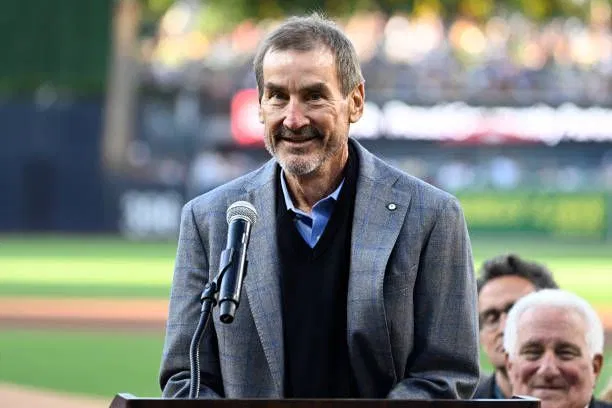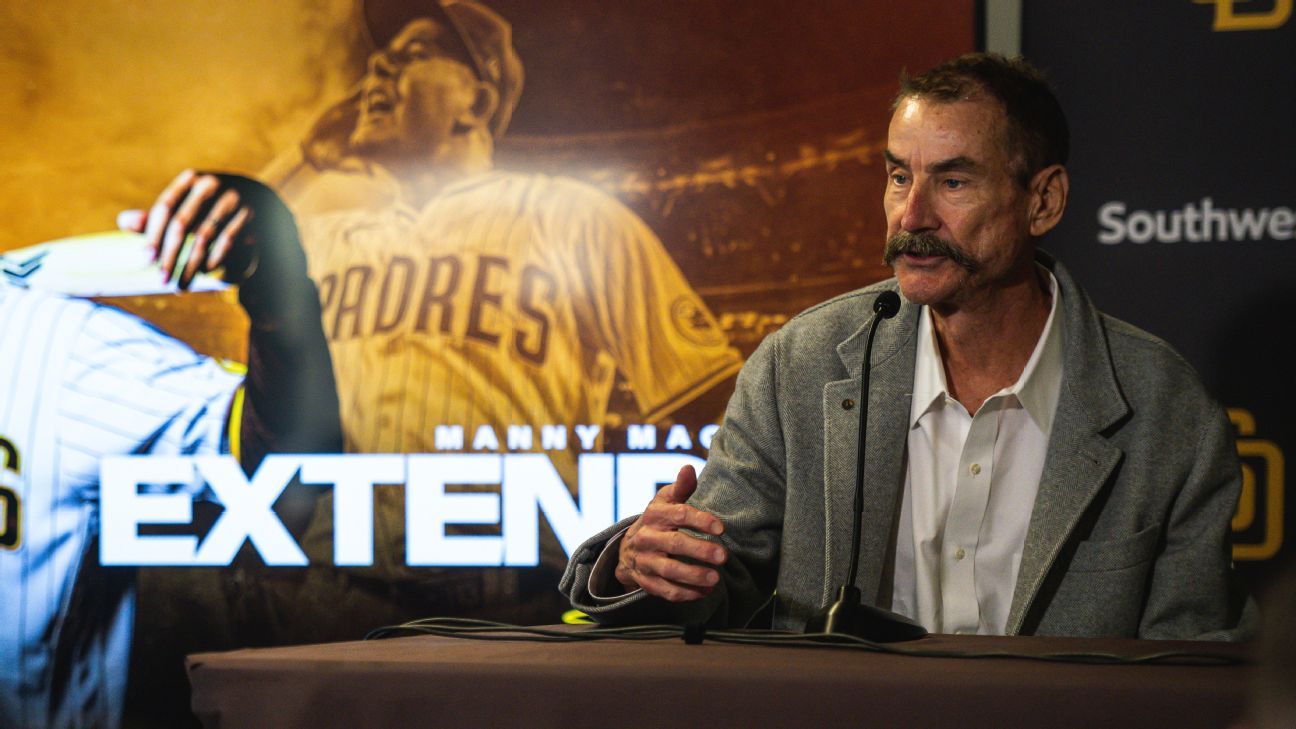When a prominent figure associated with a beloved sports team, like the San Diego Padres, passes away, it often leaves a big impact. People naturally wonder about their story, what they contributed, and how their departure might affect the team they cared for so much. It's a moment that makes fans reflect, really, on the history and the heart of their favorite club.
The ownership of a professional sports team is a rather significant role, you know, extending far beyond just financial investment. Owners often shape the very identity of a team, influencing its culture, its connection to the community, and even its on-field performance. So, when we talk about a "late" owner, we're not just discussing someone who has passed; we're also thinking about the lasting mark they left behind.
The word "late," as we understand it, can mean a few things, too it's almost. It often points to something happening after a scheduled time or simply after a period has gone by, like "late in the eighteenth century." But when we say "the late owner," it refers to someone who has passed away, someone no longer with us. This article looks into the general idea of a team's ownership, the kind of impact a leader's passing can have, and what people typically look for when asking about a team's past owners, all while keeping the San Diego Padres in mind as our point of reference.
Table of Contents
- The Legacy of a Visionary Leader
- What Happens When a Team Owner Passes?
- Getting to Grips with "Late": More Than Just Time
- A Look at Padres Ownership Through the Years
- Frequently Asked Questions (FAQs)
The Legacy of a Visionary Leader
When someone who has owned a major sports team like the Padres passes away, their story becomes a part of the team's bigger narrative. These individuals often pour their hearts and a great deal of effort into their clubs, shaping not just the business side but also the spirit of the organization. It's really about more than just numbers; it's about passion and dedication, you know.
A Life Dedicated to the Game
A team owner's life often shows a deep love for the sport and a desire to bring success and joy to their city. They might have started out as fans themselves, or perhaps they saw the potential for a team to unite a community. Their contributions could include significant investments in player development, stadium improvements, or even community outreach programs. To truly understand their impact, people usually look for specific details about their journey. For example, a biography often lists key moments that define their time with the team. This table shows the kinds of information people often seek when learning about a past owner:
| Detail | Description |
|---|---|
| Full Name | The individual's complete name. |
| Birth/Death Dates | The years of their birth and passing. |
| Role with the Padres | Their specific title(s) and duration of ownership. |
| Key Achievements | Notable successes or contributions during their tenure, such as championships, stadium projects, or community initiatives. |
| Impact on Team | How their leadership shaped the team's identity, performance, or fan base. |
| Succession Plan | Details about who took over ownership after their passing. |
What Happens When a Team Owner Passes?
The passing of a team owner, especially one who was very involved, is a big moment for any sports franchise. It's not just a personal loss for their family and friends; it also kicks off a series of changes for the organization itself. There are, you know, many moving parts to consider when such a thing happens.
The Immediate Aftermath
In the immediate time after an owner's passing, there's often a period of reflection and, you know, a slight pause in some operations. The team might issue statements, and there could be tributes during games. Administratively, there's a need to ensure continuity. This often means that a pre-established succession plan comes into play. Families might step in, or a trust might temporarily take over the reins. It's all about keeping things steady for the players, the staff, and the fans, which is, you know, very important.
Long-Term Effects on the Franchise
Over the longer term, the impact can be more far-reaching. A new ownership group might bring different philosophies, a new way of doing things, or even a different approach to team building. This could affect everything from player acquisitions to ticket pricing and community engagement. Sometimes, a change in ownership can bring fresh energy and new ideas, leading to renewed success. Other times, it can be a period of adjustment. The goal, typically, is to honor the previous owner's vision while also moving the team forward, which is a delicate balance, you know.
Getting to Grips with "Late": More Than Just Time
The word "late" is pretty common, yet it has a few different meanings depending on how you use it. When people ask "Who is the late owner of the Padres?", they're asking about someone who has passed away. But it's interesting to look at how "late" shows up in other ways, too it's almost, as it helps us understand the word better.
"Late" as a Point in Time
Sometimes, "late" describes a point in time that's after an expected moment or simply after a lot of time has gone by. For instance, you might hear "late in the eighteenth century," which tells us something happened towards the end of that period. Or, someone might say "late in the night" to mean the early hours of the morning. This usage simply points to a moment that comes after an earlier one, or a time that is somewhat past its beginning, you know.
"Late" as Being Behind Schedule
Another common way we use "late" is to say someone or something is not on time. If you "be late," it means you arrive after the planned or expected time. For example, if a meeting starts at 9 AM and you show up at 9:15, you're late. This idea of being behind schedule is something we all understand, really. It implies a delay from a set time, which is, you know, quite common in daily life.
"Late" in Health and Development
In other contexts, "late" can describe a later stage of something, especially in terms of health or growth. We might hear about "late-stage" disease, meaning it's in an advanced phase. Or, "late development" could refer to something that happens later in a person's growth or a project's timeline. There's also "Late-Onset," which means something, like a condition, starts later in life. These uses suggest a progression to a more advanced point, which is, you know, a different kind of "late."
"Late" in Financial Terms
Even in financial discussions, "late" has a specific meaning. A "late payment" is money paid after the due date. This is a very clear example of something not happening when it was supposed to. It shows how the word "late" can indicate a missed deadline or a delay in fulfilling an obligation, which is, you know, a practical use of the word.
A Look at Padres Ownership Through the Years
The San Diego Padres, like any professional sports team, have had different owners throughout their history. Each ownership group brings its own vision and resources to the club, shaping its direction and connection to the city. It's a rather fascinating aspect of sports, actually, seeing how different leaders leave their mark.
The Role of an Owner in Professional Sports
An owner in professional sports is more than just a figurehead; they are the ultimate decision-makers. They approve major player contracts, oversee the general manager, and often guide the overall business strategy. Their philosophy can truly influence whether a team focuses on long-term development, aggressive free-agent signings, or a balance of both. They are, in a way, the stewards of the team's future, which is a lot of responsibility, you know.
The Community Connection
For a team like the Padres, the connection to the San Diego community is incredibly important. Owners often play a big part in building and maintaining this bond. They might invest in local charities, host community events, or ensure the team is a visible and positive presence in the city. A good owner understands that the team is not just a business; it's a source of civic pride and a shared experience for thousands of people. This bond is, you know, something special.
Frequently Asked Questions (FAQs)
People often have questions about sports team ownership, especially when it comes to transitions. Here are some common inquiries:
1. How does ownership change hands after an owner passes away?
Typically, a succession plan is in place. This could mean ownership passes to family members, a trust, or is sold to a new group. The league also has rules that govern these transitions to ensure stability, you know, for the team.
2. What is the impact of an ownership change on a team's performance?
The impact can vary quite a bit. Sometimes, new ownership brings fresh investment and a renewed focus on winning, which can lead to better performance. Other times, it might take a period of adjustment for the team to settle under new leadership. It really depends on the specific people involved, you know.
3. How do fans usually react to a change in ownership?
Fans often have strong feelings about their team's ownership. They might be hopeful about new leadership or feel a sense of loss for a beloved past owner. Communication from the team and the new owners is key to building trust and maintaining fan support, which is, you know, pretty important for the overall spirit.
The legacy of a team owner, especially one who has passed, is a significant part of any sports franchise's story. It's about more than just who held the title; it's about the vision, the dedication, and the connection they built with the team and its community. Understanding this helps us appreciate the full history of a club like the San Diego Padres. To learn more about the team's ongoing journey, you can learn more about the Padres on our site, and for details on current team operations, link to this page here.
Related Resources:



Detail Author:
- Name : Miss Audreanne Medhurst
- Username : becker.elvera
- Email : prosacco.kaya@ratke.com
- Birthdate : 1998-09-09
- Address : 33849 Alicia Light Suite 997 Port Maxie, ID 43558-8316
- Phone : (346) 394-1042
- Company : Bernhard, Reichert and Kohler
- Job : Housekeeper
- Bio : Quasi incidunt minima quaerat qui nisi. Facilis neque et quis quia voluptas. Et necessitatibus ullam velit amet non reiciendis. Vel consequatur similique magni accusamus quas.
Socials
tiktok:
- url : https://tiktok.com/@michale.skiles
- username : michale.skiles
- bio : Sit asperiores aut et quos ut reiciendis est.
- followers : 4991
- following : 2994
linkedin:
- url : https://linkedin.com/in/mskiles
- username : mskiles
- bio : Debitis rem sapiente ullam minima nihil ut eum.
- followers : 6672
- following : 1813
instagram:
- url : https://instagram.com/michale.skiles
- username : michale.skiles
- bio : Eum sint ipsa omnis ipsum qui. Beatae qui est voluptatem dolorum debitis iusto dolorem.
- followers : 1643
- following : 1148
facebook:
- url : https://facebook.com/skiles2017
- username : skiles2017
- bio : Et rerum dolorem id consequatur aut.
- followers : 747
- following : 1908